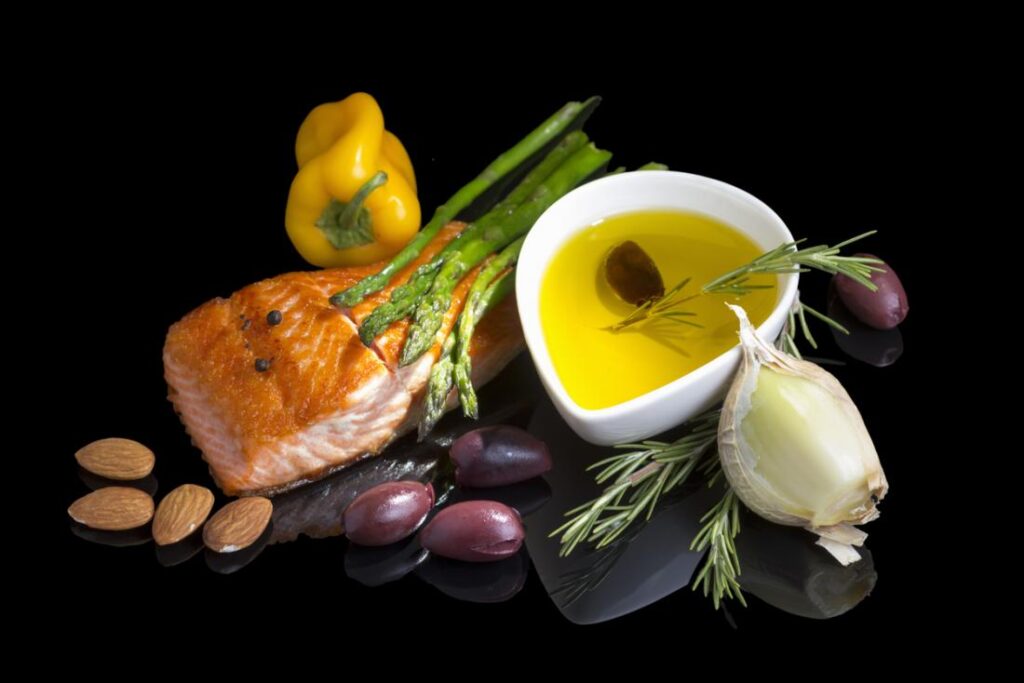What exactly is omega 3? Why are pregnant women encouraged to take omega 3?
This Post answers some of the common questions regarding omega 3

You would have probably heard about Omega 3 before. They are now readily available in the form of capsules and oils – with even vegetarian and vegan options available out there in the market. But what exactly are they?How many types of Omega 3 acids are there? Should we really need to include them in our diet?
Omega 3 is a class of Polyunsaturated Fatty Acids (PUFA), which are generally healthy fats. Certain types are essential for brain development. When taken in recommended portion sizes, these fatty acids help in reducing the levels of bad cholesterol (which are the main culprits behind clogged arteries). Omega 3 has a lot of benefits, including improved skin & hair health, better eyesight and brain development, etc.
What are the types of Omega 3?
There are three major types of Omega 3 fatty acids that play an important role in the healthy metabolism of the body:
1. Alpha-Linoleic Acid (ALA)
They are an important class of fatty acids, which can be found primarily in plant sources. Alpha-linoleic acids are associated with lowering the risk of cardiovascular diseases. They are also very important, as our body is able to convert ALA into EPA and DHA, the other important fatty acids. Flax seeds, chia seeds, hemp seeds, perilla seeds, and walnuts are all good sources of Alpha-Linoleic Acid. The oils extracted from the above seeds also contain a significant amount of Alpha-Linoleic Acids and remain stable during the coking process.
2. Eicosapentaenoic Acid (EPA)
These fatty acids are primarily present in aquatic organisms such as fatty fish (Salmon, Cod Liver, Herring, Mackerel, etc.) and edible algae (Chlorella, Spirulina, Yarrowina, etc.). You need not worry much about adding Eicosapentaenoic Acid to your diet, however. The human body is able to convert ALA to EPA, but the rate of conversion is relatively low. Studies show that Eicosapentaenoic Acids help in lowering inflammatory reactions, and in alleviating depression.
3. Docosahexaenoic Acid (DHA)
You’ve probably heard a lot about DHA and its importance in pregnant women’s and children’s diet plans. These fatty acids are required by the body to improve eyesight ad brain functioning. The reason why pregnant women are recommended to add more Docosahexaenoic Acids to their diet is that it helps in the development of healthy brain activity of the foetus. Docosahexaenoic Acid constitutes a major part of the brain and the retina of the eye, in the human body. Increasing the intake of DHA in your diet helps in improving your eyesight and brain functioning. Oily fish and microalgae are rich in DHA. The human body can also produce them from Eicosapentaenoic Acid.
Let’s talk about Omega 3 Conversions
Now that we’ve seen the types of Omega 3 and its sources, a question arises – What if I am vegan/vegetarian/don’t like fish? In that case, you might be seeking alternative sources and supplements. Before exploring the alternative sources, here’s a brief sketch about what happens to the Omega 3 you eat:
Alpha-Linoleic Acid (ALA) is an important fatty acid that the human body cannot synthesize. Plant sources are rich in ALA. The human body then converts the ALA consumed into EPA. This is, in turn converted into Docosahexaenoic Acid (DHA). The rate of conversion, though, is significantly lower than the rate of absorption from EPA and DHA-rich sources.
However, While maintaining a healthy balanced diet, one can increase their levels of EPA and DHA. This is due to the body adjusting itself to synthesize its own EPA and DHA from the Alpha-Linoleic Acid consumed. Plus, the conversion rate of ALA into EPA and DHA is higher in women than men.
The following equation shows the conversion of the Omega 3 fatty acids:
ALPHA-LINOLEIC ACID (ALA) —> EICOSAPENTAENOIC ACID (EPA) —> DOCOSAHEXAENOIC ACID (DHA)
Who needs omega 3 supplements?
You may not need any additional supplements if your diet already includes fish, flaxseeds, and other seed oils. Those who do not consume fish, however, may require supplements. For vegetarians and vegans, algae oil is a rich source of Omega 3, especially EPA and DHA. Increasing the amount of ALA consumed also helps in increasing your EPA and DHA levels. Try incorporating Hemp seeds, Perilla seeds, and chia seeds into your diet. A lot of processed foods like fruit juices, bread, etc. are fortified with Omega 3, along with other essential nutrients. Try including fortified foods in your diet, if natural sources are not readily available.
Check out Foodvez for a wide range of Omega 3 supplements.

